|
That lion ate my alpaca. I mean, I thought of her as my alpaca, but she was pretty much her own animal. And “ate” isn’t so accurate as “vigorously bit in the neck, and then semi-disemboweled.” And I’m pretty sure “that lion” is THAT lion, the one who’s been on a biting spree, the one my neighbor saw jump off the roof of his stable, that one night, and couldn’t believe the wild, muscular length of him, like a T Rex with fuzzy ears.
That lion ate my alpaca, and while I still love alpacas, spinning and knitting their lovely, soft fur, I'm thinking that building an even higher fence is a fool’s game, and it's time to get out of the lion-snacks business in these hills. I don't want to be responsible for any more deaths, and I don’t want to be part of turning against the beautiful monsters living in the shadows of these hills. I’m out. Nature Conservancy, make me a deal I can’t refuse. Like anything. At all. That lion ate my alpaca, and in his amber eyes, I saw I wanted to be on the side of wildness. I'm going to find a safe place for Minnie and Fred, and settle them there. Then, I'm going to head back into town and figure out how to live among humans again. Poor Zelda: she was a sweet beast. I loved feeding her, and clipping her soft coat, but I didn’t know how to listen, when she turned to big brown eyes on me, saying, Honey, THAT lion is not messing around, and no matter how much disco you play in our paddock at night, or how many blazing lights you add, we are not safe here. I liked my cowgirl life. I liked not having to use city-ordinance recycling bins, and not worrying about which side of the street to park on. I liked walking around in the buff in broad daylight, knowing alpacas don't care, and lions hunt at night. But that’s over. It’ll be nice to sleep without disco blaring and seeping between the gaps in my earplugs, and half my mind tuned to massacre. I could always go hiking on the weekends, and spend time helping out with other people’s alpacas. Rita in Montana could always use a hand. God! I hope that crazy fucker did a clean job of it, clamping his teeth around her poor throat, so she died fast. I hope her freeze-state worked, so that she died unafraid and without pain, knowing herself as interwoven with the world, knitted more beautiful and more true than any pattern ever looped together at the ends of my needles. Poor girl. Poor Zelda. I wish I had listened sooner. But the city! God. The city. People's cell phones and late-night yapping. People’s opinions and offenses. My own getting offended, and needing my space. The city is an echo chamber, says the cowgirl in me, and yet even as I hear this, I think, Not really. Not completely. The city has open windows just like anywhere. I’m not a lion, or an alpaca. I’m a human being, and there’s a place for me somewhere that won’t drift inexorably to the dynamics of a fortified alpaca-cult compound. Where that is, I don’t know. But somewhere. That lion ate my alpaca, and in response, I tore down my fences, and gave him my land. That lion ate my alpaca, and I felt a fool for my experiment in dominion. Dominion’s an asshole’s game, and I’m done being an asshole, or at least that particular subspecies of asshole. It’s time I bucked up, brought my animals to safety, and quit playing this alpaca-based game of Brave Ranchers of Masada. Somewhere, there's a two-room apartment with a big window looking out onto at least a sliver of sky, town, and hills. I can sleep in the kitchen, which will leave the whole other room for eating, playing, working, and drawing. It has built-in drawers next to the closet, so I don’t have to clutter the space. I can eat grocery store sushi in the tub, and sing to myself with my head underwater. I can walk to the park, and on good days, the green heron will be there by the pond at dusk, up on stilts, needle-faced, an absolutely still beautiful monster that the joggers and stroller people never notice. I won’t need to brush-hog, and I won’t need anyone to put their lives at risk when the hill-fires come near. I’ll be eating tacos on the dock, seeing the lights of the city twinkling overhead, a second set of stars. That lion ate my alpaca, and I realized it was time to get on back to the human realm, give my land back to the land, and go face what I've been fleeing. Lonely in the hills can be blamed on hills, but lonely in town calls for breaking through my shyness, making connections, remembering the things I like about people, and myself. God. What do I like about people, and myself? Well, we all have the capacity to meet change with change. We know how to make beautiful things. We know how to work with fear, sometimes, and with sadness, sometimes too. Alpacas know they’re connected to the universe, without reminding, but humans forget sometimes, and we have the ability to help each other remember. That lion ate my alpaca, and tomorrow I'm calling to find out if the Nature Conservancy will pay to have this place torn down. Enough’s enough. That lion’s got to have a bit more room to roam, you know? And I'm tired to death of my neighbors Rambo attitudes. We’re in the wrong place, on the wrong side of too many boundaries, and I don’t need ownership as an illness. Goodbye, Hills. Goodbye, sound of coyotes, smell of sage, hot flicker of fire-spark afternoons. Goodbye, dream of rugged independence. Goodbye tawny moon. Goodbye, fences and fear. That lion ate my alpaca, and I hope her blood runs right down to the hot pads of his enormous feet, into his ear-tufts and lion-balls, and out to the tip of his tail. That lion ate my alpaca, and the least he can do is be the wiliest, most magnificent damn free lion to roam these precious hills. The least I can do is shout hoorah! We have not yet cleared the beautiful monsters of this earth, nor their power to force us to be brave. Outside, the bus engine thumps, while some woman urges someone to get going. In the hills I’d never have to hear this, but since it’s true, why ever should I not hear it? Fog. From working with patients, I know that brain-fog is one of the key symptoms of fibromyalgia, and I'm pretty sure it's a direct result of, over time, over and over, being told that one does not feel what one feels, does not know what one knows, and has not experienced the events directly connected with one’s pervasive sense of being unsafe in the world. Foggy. Well, if I don’t know what I know, and I don’t feel what I feel, and if the events of my life exist in some non-existent never-world, it’s a little hard for me to stay focused on today’s school pick-up time, the grocery list, and when to take this swarm of pills designed to defog my being into a wellness that will perhaps forevermore erase the fog, the events, the feelings, and the knowing. Frankly the fog is a big fuck you to the consensus reality I’ve been bullied to get with, these many years. Or so I imagine.
Fog. One of the difficulties of being an empath is that it can be hard to know what's my feeling, and what’s someone else's. This lack of clarity is getting better, as I settle more and more into the body's solidity, its big, firm butt on the chair, and size-eleven feet on the ground. But still. Sometimes in a room full of people sporting the full-on fog, I get lost, too. Where’s the harbor? What’s the point of any of my bright solutions, when you are trying to raise a wolf-child in a barely heated cabin in the middle of nowhere, while a feral puppy eats the furniture, and your back is being torn apart at the shoulder-blades? And you – what use have you got for what I might say, when most of your upper teeth are gone, you haven't slept in years, and pretty much no one on the planet has offered the time, space, or resources to help you unwind the never-world of neglect and abuse where you spent your formative years? The skull on your sweatshirt says, Fuck You, Mindfulness Lady, and, believe me, I get where it’s coming from. I do the meditation expert’s version of a Trump press conference, and exit the room, pretty convinced I know nothing, or feel nothing, and may not necessarily exist in any meaningful way. As it turns out, therapy-universe has a word for this phenomenon – it's called de-skilling, and it's a classic thing that happens around people whose experiences of being diminished become externalized into a cleverness-erasing force field. It’s a superpower, and it can be really scary to interact with. What to do? Well, you could attempt to armor your heart completely, and have nothing to do with the parts of yourself & of other people that have been silenced. Or you could try to allow contact, but only within certain roles. Expert is acceptable. Skeptic also. I read yesterday about the Internet-based movement to “debunk” the Newtown school shootings, which goes as far (apparently) as to demand of parents that they disinter the bodies of their slain children, to prove that they were killed by gunshots. This impulse has a very strong WTF quality, until one realizes that, just as the Expert seeks distance through knowing-without-feeling, the Skeptic seeks distance through denying-without-feeling. Anything to avoid being de-skilled, disarmed, discombobulated, contaminated with pain and loss and horror. By contagion, both expertise and skepticism can themselves be powerful de-skilling forces. Or, you could develop the capacity to stay grounded in your own body and experience, and then go into the fog with this awareness as a lifeline. Ask. What is it like right now? Ask. What do you feel? What do you know? Which are the parts of yourself that have been pushed off into a blurry never-land, but nevertheless have something important to say? Start to understand that nothing is in and of itself inherently foggy. That morning river road is a momentary version of something that can also be clear, bright, visible, understood. Sometimes fog clears quickly, and sometimes it sticks around all day. Fine either way. Don’t confuse the fog with the terrain. The times I have experienced deskilling – when talking with profoundly depressed people, when teaching sullen, hung-over people – have been horrible. They've also been formative, because they’ve crystallized commitments to avoid de-skilling others in the world, to go into my own foggy places, to approach other people’s stories with a lifeline in place, and willingly enter fearful places and ideas. A long time ago, I was assigned to teach a Writing About Language and Literature course to first-year students at the Chinese University of Hong Kong. This was hard. I was maybe three years older than my students, and I knew very little about teaching. What I did know, I had gleaned from the beautiful expertise of my various professors, whose polished lectures opened doors of scholarship into my birthright as a human being. You are a born participant in the vast arc of the humanities, they said. But this model of teaching was not going to help me, here. First, I didn't know much, so, good luck with the brilliant lectures. Second, even if I had been a magnificent scholar, it wouldn't have mattered, because my students’ English comprehension, speaking, and writing skills were mostly not good. And why would they have been? All through their Cantonese-speaking childhoods, these young people had been frog-marched through English, the language of people preparing to – in the face of great uncertainty – abandon the project of colonizing them, while at the same time demanding all the attention and respect of a long-term responsible partner, instead of a love ‘em and leave ‘em abusive country-song boyfriend. Anyway, we had a problem. I was supposed to help these kids learn to write and speak more fluently, and to do that, I needed to understand something more about the thick fog of silence that hung over the classroom. Early episodes did not go so well. Having, I thought, come up with a brilliant set of discussion questions, I was met instead with heavy, drippy clouds. I said, If you won’t talk, I won’t stay. I spun on my heel, walked out, and slammed the door so loudly I thought the cinderblock classroom building would come down on us all. The students told me, next time, that it was not in their culture to speak up. I said that this was too bad, because it was in my job description to make them. Impasse. Then it occurred to me to wonder if, instead of inserting some new story from outside the fog, I could ask the students to report from inside it. I asked, Who are you? Where do you come from? What does it look like, where you are? What do you know and feel, what have you not been allowed to talk about, throughout your long and semi-coercive career of learning English? So my students wrote from their lives. They interviewed one another, and wrote about one another's stories, till the fog cleared of its own accord. Not through some irresistible power of my expertise, but through having so little not-knowing and not-feeling left to feed on. The fog cleared as fog will – in its own time, in response to warmth and change. Peru, says the very convincing white-board in the room where my friend and I, released from the grip of snow, find ourselves writing. Oh, Peru! You know about snow, don't you? You know about snow, and postsnow mud, and at the same time, your palette of electric fuchsia and orange, teal and yellow meets those things differently than we do here in New England. Why bother with grey, beige, or muted blue, when panpipes can carry color so vividly over snow? Peru, your poetics of snow are different from ours, and I salute them, while also, in some way, saluting us. We, the drippy-nosed New Englanders, negotiating our predicaments as best we can, in grey and plaid, with calm endurance.
This morning I broke some kind of code: waking, I called the plow-guy we don't exactly employ, and asked if he would come help us. Then, still awaiting his arrival, I followed Timothy's advice, and just aimed the car backwards through 7 inches of snow, hoping for the best. I got a bit marooned at the cervix, but with a little spinning and lowing, emerged. A breech birth into the world - hoorah! There was a bit of Peru in this strategy, with Krishna Das kirtans standing in for the Hail Maries I so clearly needed. Why don't we paint bright, long-lashed eyes on the front of our cars in New England? Or cheetahs? We could certainly use them as much as the Peruvians, or the Bhutanese, who’ve not forgotten that their vehicles are the descendants of yaks and horses, and equally deserving of crowns, tinsel, colored tufts of wool, and generalized devotion, to precede the dangerous crossings ahead. The best my soberly blue Subaru currently has to show on its rump is an out-of-date sticker for the Dartmouth cross country ski facility, which no cow, nor yak, nor horse would find comfort in, on her way up a sleety pass. But, resale value. But, the neighbors. Who cares? Why put off the exuberant delights of travel-blessing for some imagined someone, somewhere else? Our roads are safe, but they are not failsafe, and so a practice of fervent prayer and devotion would not at all be out of place, here in New England, where the roads are steep and the brakes run out, long before the hills are done with us. Once, in India, taking the night bus to Dharamsala, I wrangled my way onto the long bench at the front, where the driver’s friends are supposed to sit and smoke. Maybe this driver’s friends were like, No way dude! That run’s a pile of corpses. You're on your own. Anyway – there was just barely enough room there for me to stretch out completely, provided I was willing to wedge the crown of my head against the bus windshield, and my feet against a divider near the doors. This, strictly speaking, was a terrible idea. One sharp stop and boom! Concussion, broken neck. But I decided it was fine: the driver seemed steady, and between him and me, there was a perfect little Shiva-shrine, with tinsel, lights, incense, and everything. If this calm man, and that brilliant dancing god, were on board, then yes, sure, sign me up for the glass membrane over Himalayan precipices. I've got various forms of fear of heights, originating as much in a felt physiological sense of nausea, as in childhood memories of my father's persistent fear that we would fall to our deaths. His friends had lost a child overboard in a sailing accident they never noticed till realizing their toddler was, simply, gone. For me, this fear, historically shows up when I feel like I’m in charge, and my own poor judgment has brought me into a foolish relationship with the void. Step off this cliff, right here. What? Whose idea of a good time is that? Walk along this 5” trail above an abyss of icy scree. Really? But the fear does not show up in the same way with buses, planes, cars – situations where I’ve handed over navigation to someone else. Oh, well, I’ll think. This person’s going to do as well as they can, for the situation. Pass the snacks! All of this is changing, as I learn to pay attention, first, only to the aspects of my experience that serve to ground me in safety. The steady feet. The breath, the Buddhist Hail Maries that focus narrative aspects of mind on what is benevolent, and invite some kind of cosmic safe driver to watch over the proceedings. I trained for many months going up and down a local fire tower, gradually growing my capacity to be with what I felt and saw, until it was big enough to enjoy the experience, without getting stuck in fearful strands of sensation. Then, last winter, I went up to the top of a mountain in Engelberg, Switzerland, where someone clever had built a magnificent glass suspension bridge over a deep gap between mountains. Aha! I thought. Here is something to work with. I started small – walking with eyes up, holding the cable handrail as I went. Slow, steady steps, paying attention only to my own progress. Totally fine. Next, a bit faster, a bit more scope in my gaze. Still good. A kind of wild joy started to arise, borrowing for itself some of the energy that fear used to eat. I walked across, looking down through the glass slabs into the void. Amazing! I walked faster, letting go of the hand cables and enjoying the swaying of the bridge, as it danced my whole body. I opened my gaze wider, and took in the experiences of my fellow crossers: afraid, exhilarated, frozen. I counseled the fearful, and in one case, even took someone’s hand until she made it across, delighted with herself as fear drained off. In the few hours I played around there, allowing myself to be taught, this Peru of the Alps, this high place, showed me a whole cycle of being. Knowing the cycle, I feel its manifestations playing out again and again in the rhythms of experience. I am driving through a snowstorm to give a talk on refuge and exile at a church. It's Sunday. I am late. I'm not used to driving through heavy snow. Where will I park and unload the props of my trade? I place attention in my butt-warmed seat. I hand over solutions to something more resilient than my busy mind’s problem-solving channel. Most everyone around me is being cautious, like me, and the ones who aren't, don't freak me out. Voila! At the church, there’s a beautiful Sunday Visitors spot open, just for me. Steady, open, curious. I wonder what this will be like? And this? I've not been to Peru, and I don't know if I'll ever make it there in this life. But the things I've learned in Tibet (the Asian high-mountain analog of Peru) and in India, and through practices originating there, carry me across the voids and cataracts of life here in New England, and wherever I go. Don’t be afraid of devotion. Open to resilience that comes from something other than masterful control, or possessing all the right answers. Put your head against the glass, stretch out next to the god, and allow experience to arise as it will, not despite but right through the fearful places. Somehow, the narrow way will yield. Somehow, we all come through to now. I come back to the body, to the low hum of the library’s heating system, the grey industrial carpet, and the beautiful wooden table supporting our notebooks, our elbows, our intent eyes, our travels to Peru and anywhere. This, then, is the way: neither Peru, nor not-Peru, just here, not for any reason ever believing that a way through can’t be found. The newspaper arrives, double-bagged in orange plastic, to announce the stories of the day, within which: questions, openings, possibilities. Yes, lies adorned, but also, why not, truth. I want to usher in an era of resistance that looks like devotion: beautiful, tinselly, lit in all colors, unafraid to sparkle and to laugh. Dog drama: the dramas our dogs are assigned to act out for us, because we, in our human-suits, haven’t got one-eighth the harrumph of our beasts, in their lithe and sinewy dog-bodies. Elliot gets a particular, completely crazed look on his face, as soon as a prey-surrogate is around. He knows it's a stick, or a very manky tennis ball, and yet it is also IT – the fulfillment of his predator dreams. The ears go up, the eyes go wide, the fangy teeth sparkle. His front legs go straight – springs ready to release. I am leaning down to pick up a stick Chloe has selected, and Elliot runs into my face, full-force. Ouch! Holy hell! My nose, my lips, my teeth! Face full of dog-drama, I taste blood. But then I remember how tolerant Elliot and Chloe are, on the innumerable, inadvertent occasions when we kick them under the table, walk on their tails, or trip over their inert bodies, right in front of the sink. I can’t be angry with a creature who’s never been angry with me. I throw the stick. STICK! Both dogs run for it. Back home, I see a slight bloody patch on my lower lip, and decide it’s fine. A lot of Zen koans are dog-dramas. The one my Sunday group unpacked yesterday* goes like this: One day when Master Zhaozhou Congshen was wandering outside the monastery, he saw an old woman hoeing a field. He asked her, "What would you do if you suddenly met a fierce tiger?" She replied, “Nothing in this world frightens me,” and turned back to her hoeing. Zhaozhou roared like a tiger. She roared back at him. Zhaozhou said, “There’s still this.” Tiger-drama, dog-drama. The dogs leap and twist over one another, sparring without reservation and without harm. Or, mostly without harm. One of Chloe's ears is now like a puffy hot beignet, swollen with blood from a vessel ruptured in the throes of Elliot-wrestling. She doesn't seem to care all that much about it, except maybe that it flops a little harder against her head when she runs full-tilt. There’s still this: we can still spar and play. We are still vulnerable to injury, and that shouldn’t stop play in its tracks. Actually, there is an important distinction to be made between sudden, unexpected, intense actions, and the responses that make them into drama. Back a couple of paragraphs ago, I chose not to make drama out of the fact that Elliot ran into my face. I didn't go into he's a bad dog, or, nobody not even my dog cares about me, or even my face is ruined and my drawing students tonight will be convinced that I am living a sordid life of booze-addled violence. So, no drama. I stayed in the mainstream, where present-moment experience unfolds, and didn’t let the physical sensations go anywhere besides, ouch. For a lot of my life, this mainstream did not feel like home. No home in the mainstream means no incentive to stay there, and so drama becomes seductive, unavoidable. I would go on excursions to the Himalayas, or to blissful samadhi states, and not want at all to come back, because I didn’t have much trust or interest in any “back” there might have been to come to. With the help of someone far more experienced in Gabrielle Roth’s five rhythms than I, I've been listening into how an old bias for the extraordinary and the dramatic has played into how I’ve composed playlists for the dances I offer. I have an acute intuitive sense for music that opens doors into powerfully pleasant movement-states for me. That’s wonderful, and the shadow of that capacity is that I have often felt real resistance to music I felt was too ordinary, too staid. I’ve made junkie-playlists – playlists that go from high to higher, leaving no room for integration back into just being here, being human. Last night was different. Using feeling and language I’m learning from trauma-work, I titrated back and forth between intense songs and songs that felt a bit more steady. I built in dog-dramas AND periods of laying contentedly on the couch, navigating back and forth comfortably. My playlist came home from the high pass in Tibet, and opened the fridge, without resistance. Without pining for drama, there’s the ability to appreciate the overall feeling of presence, just as it is. The name of a young activist who recently pissed me off has been, off and on this morning, in my mind like a mantra. But I can tell this is the drama-drive trying to wind itself up. Why bother? I put my attention in my butt instead. I put my attention in my feet. If a conversation with this person is to happen at some point, then it will, and letting the drama-drive shape it ahead of time won't have been a good investment of my time and energy. I can let the incident bounce off me like an over-excited puppy-dog. I can come back to where I am – startled, a bit off-balance, but basically fine. This is the practice of being able to move from wandering or hoeing, to roaring like a tiger, and back, without sticking anywhere. “There’s still this.” I can still get stuck into drama, and I can refrain in ways that weren’t accessible to me, earlier. Observing, stuck, or not, “there’s still this” seems like a fine response. It's colder and there's a fine new dusting of snow on the old icy crust. Elliot takes a tremendous wet dump right in the middle of the trail. Right here, one stick, one wide curl of birch bark. I nudge the poop onto the bark and hurl the whole mass towards the stone wall to my right. Whoosh! Splat. There still this, and the next thing, and the next, unfurling without end and without resistance, if we let it. * "The Old Woman, Zhaozhou, and the Tiger," p. 135 in The Hidden Lamp: Stories from Twenty-Five Centuries of Awakened Women, Florence Caplow and Susan Moon, Eds. Boston: Wisdom, 2013.
|
AuthorJulie Püttgen is an artist, expressive arts therapist, and meditation teacher. Archives
November 2019
Categories |
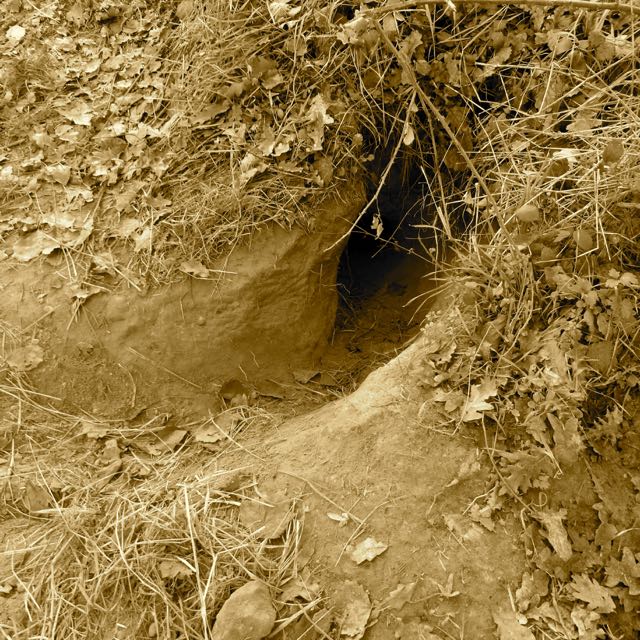
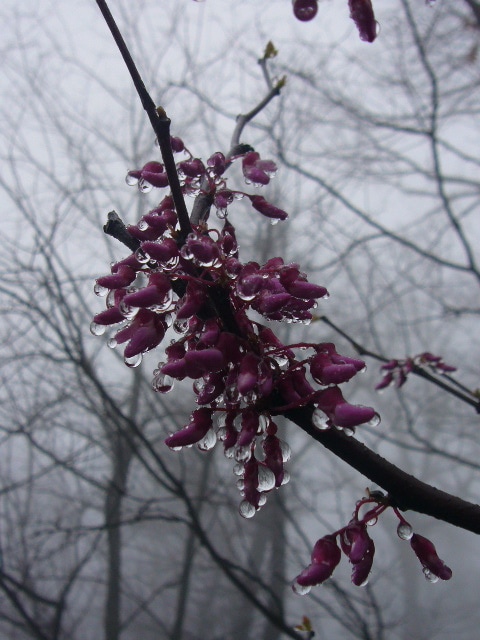
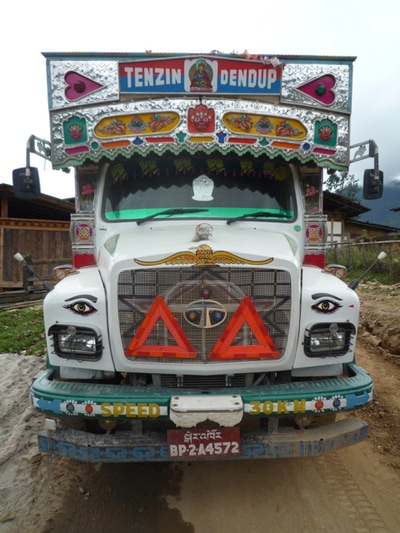
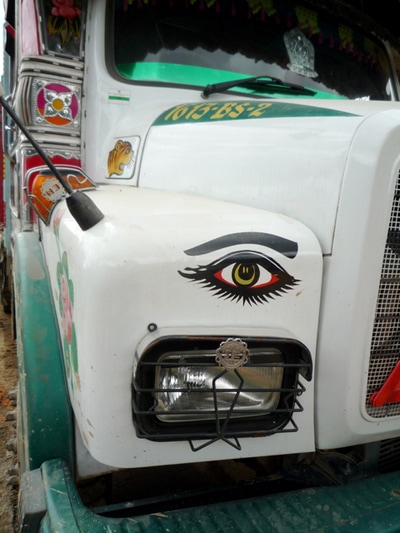
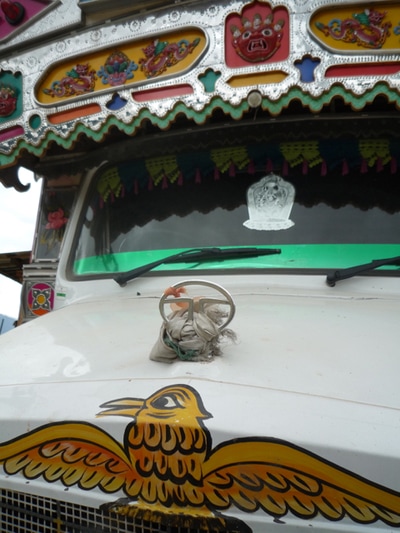
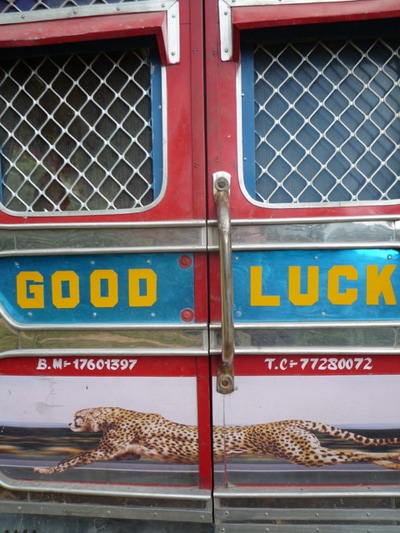
 RSS Feed
RSS Feed